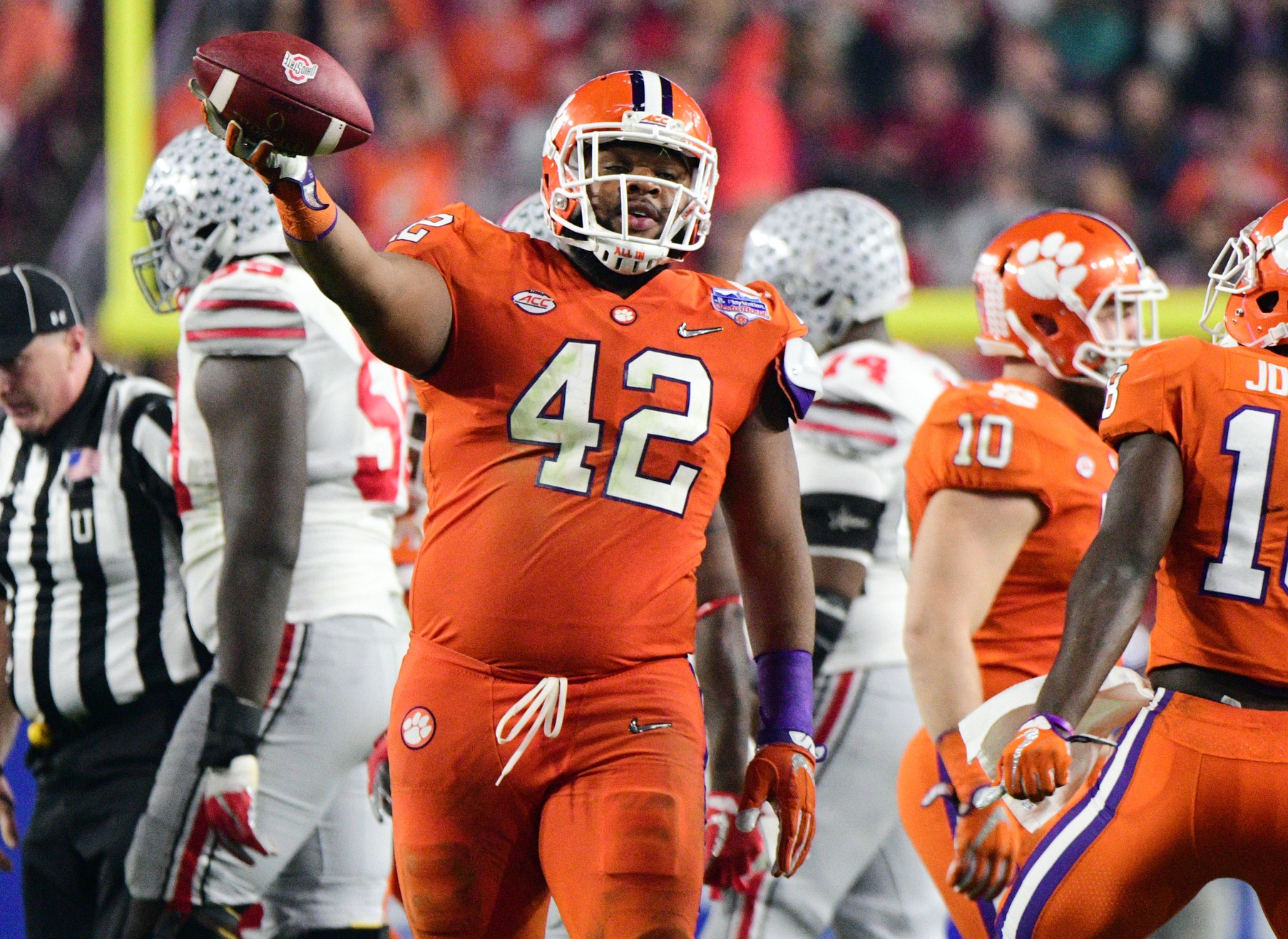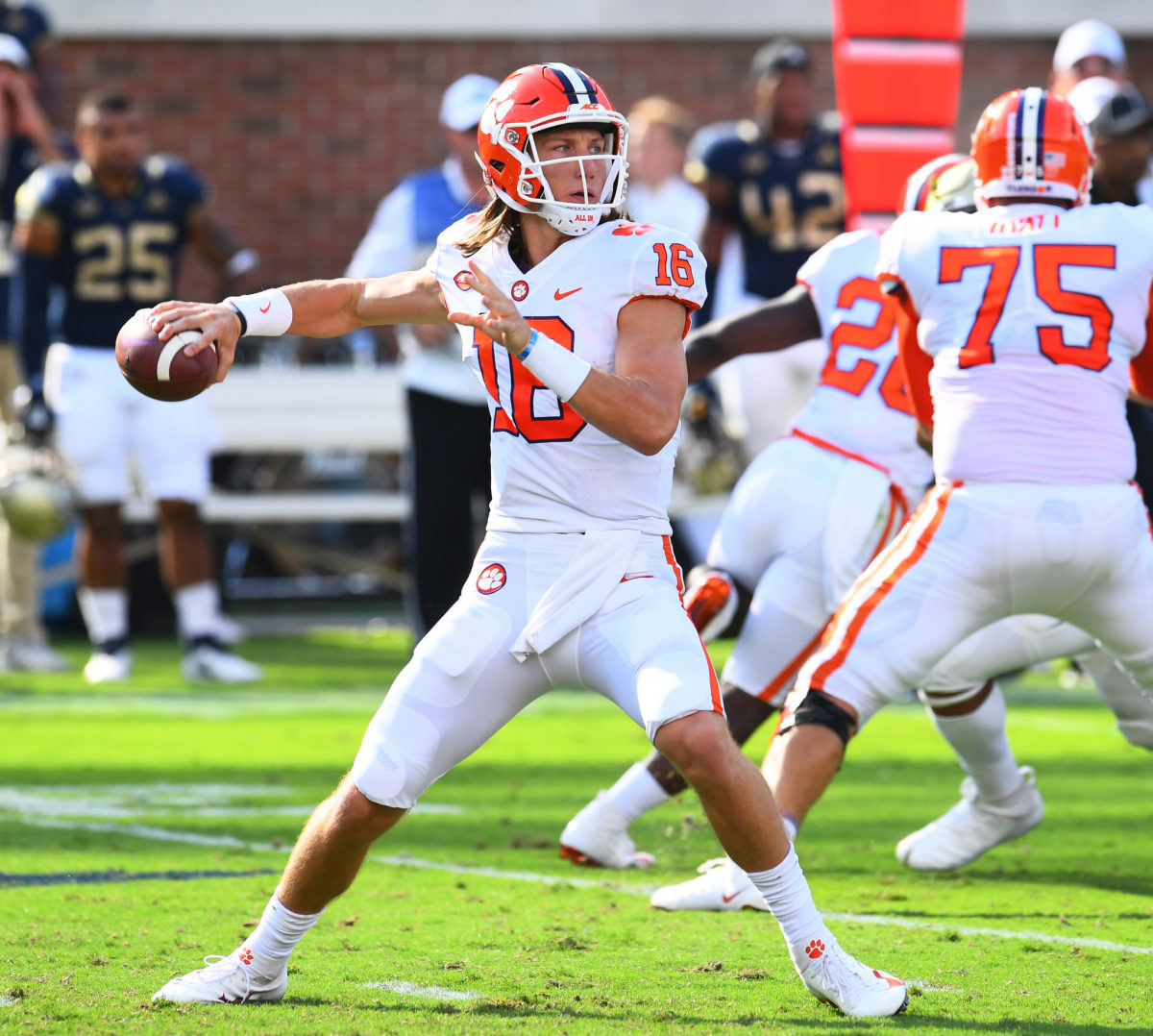Player Conduct and Ejection: Clemson Player Ejected

Clemson player ejected – A player’s ejection from a game is a significant event that can have a major impact on the outcome. Ejections are typically the result of unsportsmanlike conduct, such as fighting, arguing with officials, or using excessive force. In some cases, players may also be ejected for violating league rules, such as using performance-enhancing drugs.
The Clemson player’s ejection sent shockwaves through the stadium, reminding me of the tumultuous departure of Delonte West from the NBA. Like the Clemson player, West’s exit was marred by controversy and a sense of unfulfilled potential. Yet, both incidents underscore the fragility of athletic careers and the need for resilience in the face of adversity.
Rules and Regulations, Clemson player ejected
The rules and regulations governing player conduct on the field are designed to protect the safety of players and ensure that the game is played fairly. These rules are enforced by game officials, who have the authority to eject players who violate them.
The news of a Clemson player being ejected during the game reverberated through the stadium, stirring a ripple of emotions. It reminded me of the recent news surrounding the enigmatic figure, Jerry West. His cause of death remains shrouded in mystery, leaving behind a legacy that continues to captivate and intrigue.
Yet, as the game resumed, the intensity on the field intensified, mirroring the complexities of life where both joy and sorrow intertwine.
Potential Impact
The ejection of a player can have a significant impact on the outcome of a game. If a key player is ejected, their team may be at a significant disadvantage. This can lead to a loss of momentum, a decrease in morale, and an increased chance of defeat.
Referee Decision-Making

The referee’s decision to eject a player during a sporting event is a critical one, as it can significantly impact the outcome of the game. The referee’s decision should be based on a fair and impartial evaluation of the available evidence, taking into account the rules of the game and the potential for bias or error in judgment.
In evaluating the referee’s decision to eject a player, it is important to consider the evidence available to the referee at the time of the ejection. This may include video footage, witness statements, and the referee’s own observations. The referee should also consider the potential for bias or error in their judgment, and take steps to minimize the impact of these factors on their decision-making process.
Bias and Error in Referee Judgment
Referees are human beings, and as such, they are subject to the same biases and errors in judgment as anyone else. These biases and errors can be caused by a variety of factors, including personal beliefs, prejudices, and expectations. It is important for referees to be aware of their own biases and errors, and to take steps to minimize their impact on their decision-making process.
One way to minimize the impact of bias and error in referee judgment is to use a standardized set of criteria for making decisions. This criteria should be based on the rules of the game and should be applied consistently in all situations. Referees should also be trained to recognize and avoid common biases and errors in judgment.
Consequences and Reactions

The immediate consequences of the player’s ejection were severe. He was penalized with a 15-yard unsportsmanlike conduct penalty, which resulted in an automatic ejection from the game. Additionally, the player was suspended for the next game by the conference commissioner.
The reactions to the ejection were mixed. The player was visibly upset and argued with the referee before leaving the field. His teammates and coaches were also visibly disappointed, and the fans booed the decision. However, some fans and commentators supported the referee’s decision, arguing that the player’s behavior was unacceptable.
The long-term implications of the ejection for the player’s career and reputation are still unknown. However, it is possible that the ejection could damage his reputation and make it more difficult for him to find a job in the NFL.
The unfortunate ejection of a Clemson player during the game left a sour note on the otherwise thrilling match. Yet, it was a reminder that even in the heat of competition, there are boundaries that must be respected. As we ponder the consequences of this incident, it’s worth considering the wisdom of Jerry Weat , who once said, “True sportsmanship means playing within the rules, respecting your opponents, and striving for excellence.” May this ejection serve as a catalyst for a deeper reflection on the values that guide our athletic pursuits.
The recent ejection of a Clemson player during a heated game has sparked controversy. While the player’s actions may have been unsportsmanlike, the severity of the punishment has raised questions about the fairness of the decision. Read more about the incident and its implications at clemson player ejected.
The ejection has reignited the debate about the role of sportsmanship in competitive sports and the need for a balance between discipline and player welfare.
The Clemson player’s ejection sent shockwaves through the stadium, leaving a void that echoed the absence of a legendary figure like Bob Cousy. His deft ball-handling and court vision would have surely steered the game towards a different destiny, mirroring the grace with which he navigated the hardwood, leaving an indelible mark on the history of the sport.
Yet, the Clemson player’s expulsion served as a stark reminder that even in the absence of icons, the game must continue, its flame flickering, waiting for a new generation to ignite its brilliance.